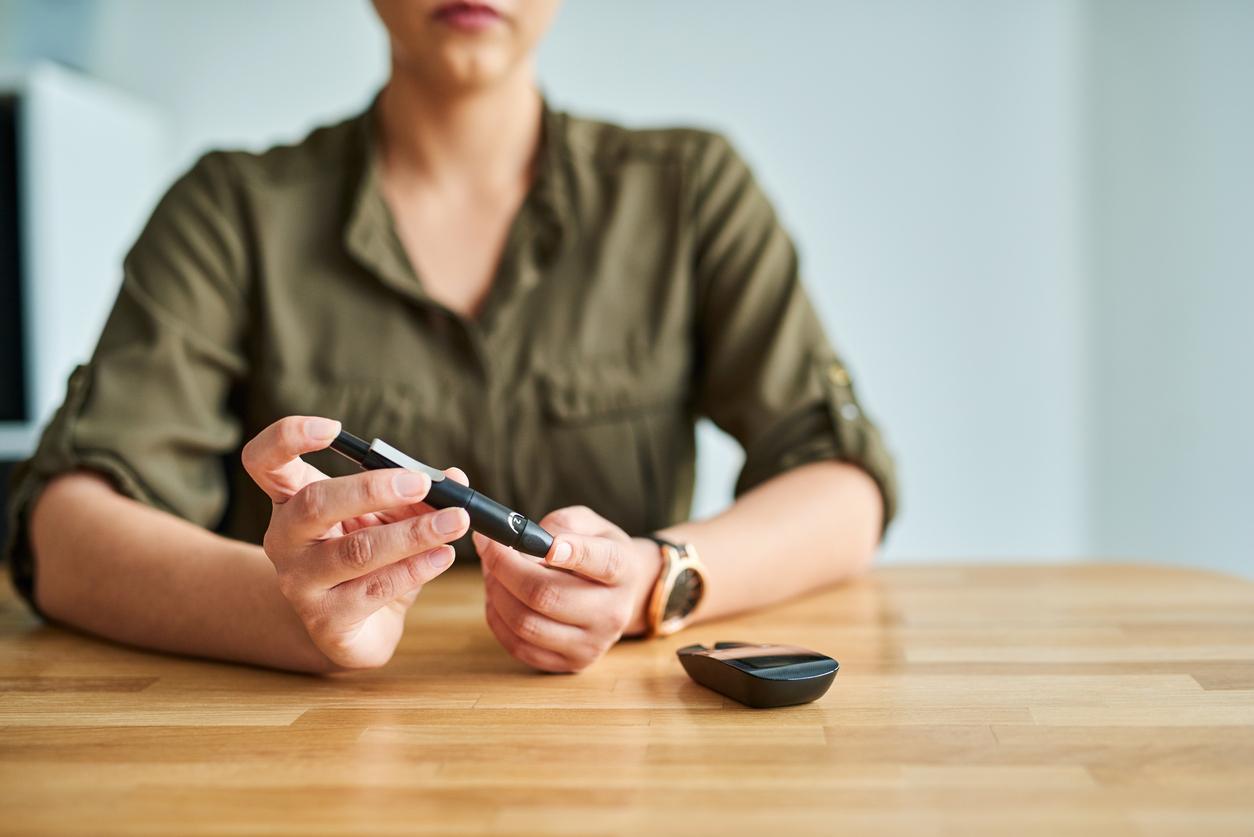We’re Stronger Together
With your help, we can make ambitious innovations in clinical care and education for our community.
Enter your email to start your free information request.

If you or a loved one is living with diabetes, you know it’s a daily routine of closely monitoring what you eat, trying to fit in regular exercise, taking medications and testing your blood sugar. The added stress and discomfort brought on by nerve pain can be exhausting and even unbearable — a struggle that up to 50 percent of people with diabetes face every day.
Diabetes can cause diabetic neuropathy if blood sugar levels aren’t monitored and controlled. This causes damage to the nerves that send signals throughout the body.
Some of the symptoms of diabetic neuropathy can include numbness and tingling of the extremities, sharp and aching pain, and discomfort doing daily activities such as walking or getting dressed.
Here are some safe ways to relieve some of the pain caused by diabetes.
Controlling your blood sugar will help stop nerve damage from progressing. According to researchers, uncontrolled high blood sugar levels damage nerves and interfere with their ability to send signals, leading to nerve pain. Heightened levels of blood sugar also break down the walls of the small blood vessels, which supply nerves with nutrients and oxygen. Talk with your doctor about ways to monitor your blood sugar and set goals for daily levels.
Talk with your doctor about what medications could help ease your pain. Your provider might suggest trying an over-the-counter pain reliever such as ibuprofen, aspirin or acetaminophen. Using a low dose for a short period of time could help control your symptoms.
INF is an innovative therapy treatment that is noninvasive and requires no medication. It involves holds and positions to conceptually bring blood back to your nerves and relieve the pain that is created from the nerves not having access to blood.
Certain physical therapy activities can help safely and naturally soothe diabetic neuropathy. Low-impact exercises that are most effective include swimming, strength training, balance and stability work, and mind-body exercise. Avoid high-impact exercises such as heavy cardio because it may result in nerve numbness.
When visiting a physical therapist, be sure to find someone you trust who understands neuropathy. This will be helpful in meeting your specific needs while not causing more damage to your nerves.
Nerve damage can sometimes block feeling in the feet. It’s important to pay close attention to your foot and hand health. Check your feet and hands daily for cuts, sores, swelling or other problems. You may feel like nothing’s wrong, but your nerve damage could be blocking pain signals to the brain. Avoid infections from any cuts or sores. Wash your hands and feet daily with warm water, drying them completely. Keep them moisturized by using lotion. Make sure your shoes are flexible, comfortable and give your feet room to move. Try to keep your feet covered. Slippers or thick socks can help cushion and protect them from damage. If you’re doing yard work, wear gloves on your hands.
We are learning more about how to relieve nerve pain caused by diabetes. Don’t hesitate to talk with your doctor about the nerve pain you’re feeling and create a plan to address the symptoms that is right for you.
If you’re suffering from nerve pain, our Neuropathic Therapy Center may be able to help using a breakthrough physical therapy treatment called Intraneural Facilitation or INF.™ For more information and to schedule an evaluation, call 909-558-6799 or request information online.
With your help, we can make ambitious innovations in clinical care and education for our community.